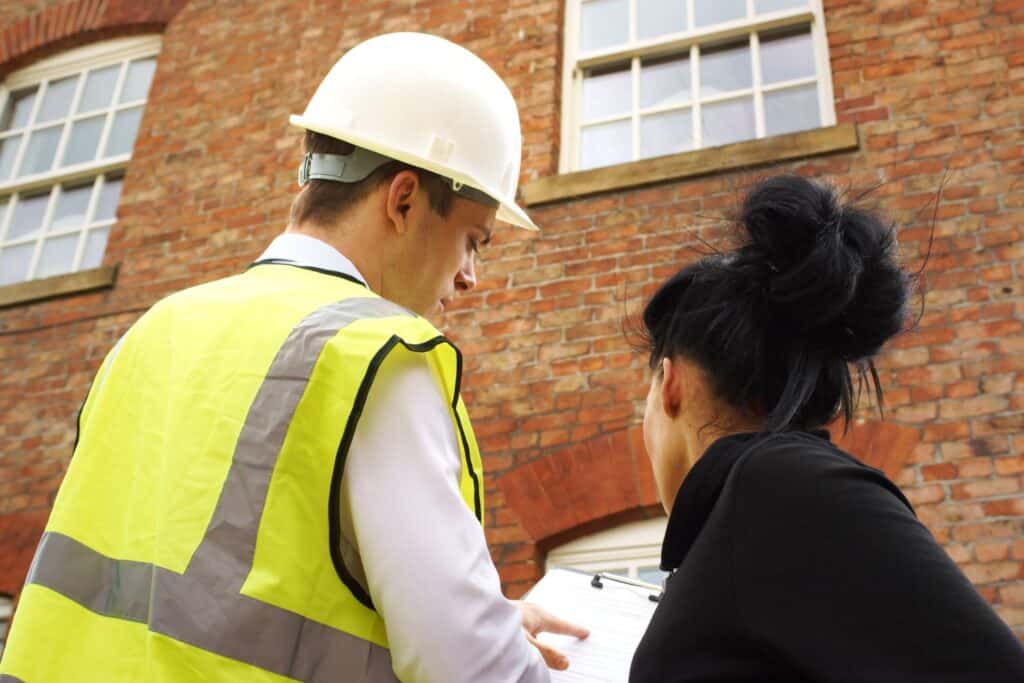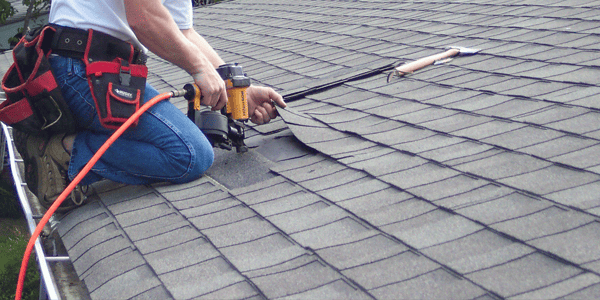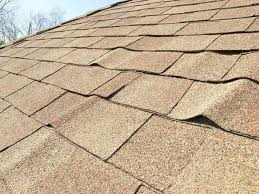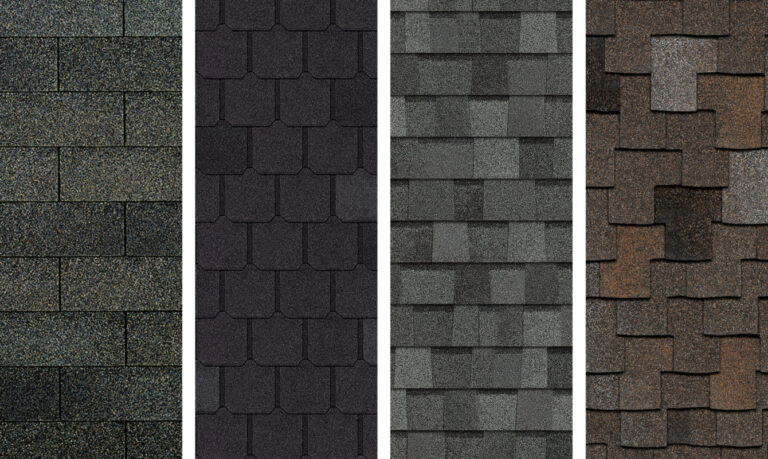Many things in life are confusing, like astrophysics, English grammar rules, and homeowners insurance policies. Every homeowner should have a homeowners insurance policy, but when it comes time to file a claim, the fine print can get confusing.
In certain instances, your homeowners’ insurance policy will cover a roof replacement. You want to be fully prepared so that you aren’t scrambling as you attempt to file a claim.
Reference these 9 insurance roof replacement questions to set yourself up for success.
Top 9 Insurance Roof Replacement Questions
1) What Types of Damage Are Covered by Homeowners Insurance?
Even though homeowners insurance covers a wide range of damage to your roof, it doesn’t cover everything. Before diving headfirst into filing a claim, it’s important to know what types of damage are even eligible.
In general, homeowners insurance covers “sudden and accidental damage,” which can fall into the following categories:
- Storms: Your general policy should cover damage caused by wind, hail, and lightning.
- Vandalism: If a third party vandalized your roof and caused damage, you should be covered.
- Fires: Fire and smoke damage should be covered, even if it’s caused by a natural disaster that isn’t covered in your policy.
- Falling Objects: Falling trees, branches, and other debris that cause your roof to sustain damage are covered by most general policies.
- Weight of Snow: Your insurance company likely covers damage caused by the excessive weight of snow.

What Homeowners Insurance Does NOT Cover
Unfortunately, there are a handful of accidental damages that aren’t covered by general homeowners insurance. Homeowners insurance will NOT cover the following damages:
- Floods + Other Water Damage: You’ll need a separate flood insurance policy if you live in a flood-prone area. Keep in mind that if you frequently deal with hurricanes, a general policy will cover wind damage, but you’ll need separate flood insurance for potential water damage and mudflow. A general policy will also not cover overflows or backups from sump pumps, sewer systems, or drains.
- Earthquakes: You need to get a separate policy for earthquakes, sinkholes, and other earth movements if you live in an area prone to these natural disasters.
- Lack of Maintenance: Any neglect on the homeowner’s side of things or general wear and tear issues are not covered. This can include things like insect/termite damage, mold, or rust.
- War: No one wants to think about their home being damaged in a war, but in the off-chance it happens, war and nuclear hazards are not covered by homeowners insurance.
2) Will My Insurance Company Cover a Full Replacement or Only Repairs?
It’s definitely ideal that your insurance company would cover the entire roof replacement cost if you sustain damage. However, that’s not always the case, even if your roof damage is covered in your policy.
Ultimately, insurance companies offer comprehensive coverage for both roof repairs and replacements. However, what they approve of or how much they fund depends on the extent of the damage. If you sustained a few damaged shingles, your insurer will likely only cover repairs. But if you sustained extensive damage, they should cover a total roof replacement.
It’s actually in your insurance company’s best interest to replace a significantly damaged roof, so if all goes well, you shouldn’t be left in the dark if your roof has major storm damage.
3) Who Should I Contact First: My Insurance Company or a Roofing Company?
While you technically can’t go wrong if you contact your insurer or a local roofing contractor first, we recommend calling a roofing company first.
It’s wise to go into the insurance claim process with a clear and detailed understanding of the damage you have on your roof. Most reputable roofing companies offer free inspections for storm damage. A local roofer will schedule a time to look at your roof and mark up and document the damaged areas.
Be sure to contact a local, reputable roofing contractor with good reviews.
- Pro Tip: “Storm chasers” can be prevalent after a storm rolls through your area. These out-of-state visitors will show up at your doorstep and try to scam you by demanding large cash sums upfront. They often can’t show proof of their licensure or certifications. Avoid storm chasers by hiring a contractor with a local phone number & address and good online reviews.
4) How Many Roofing Estimates Should I Get?
It’s a good idea to get a few roof estimates when you don’t already have a roofing partner you’re committed to working with. Sometimes, your insurance company may require you to get three estimates. They do this to ensure you get a fair offer for your area.
Get two to three estimates if you’re in need of a new roofing contractor. Even though your insurer may push you towards the lowest estimate, you are ultimately allowed to choose your preferred contractor.

5) How Quickly Do I Need to File a Claim?
Most insurance companies allow you to file a claim up to one year after the damage occurred. However, it’s not wise to wait an entire year. Often, the longer you wait, the more ground your insurance company has to claim your damage was caused by neglect instead of a recent storm.
Plus, roof damage can lead to more substantial and expensive damage in the rest of your home.
In short: act fast and call a professional roofer at the first sign of damage. Sometimes, the damage isn’t visible to the untrained eye, so it’s a good idea to secure a free inspection after a major storm to be sure.
6) Will My Insurance Rates Increase If I File a Claim?
Your personal insurance rates should not increase if you file a weather-related claim. However, you want to be mindful of not filing a claim too frequently, as this can raise eyebrows for your insurance company and cause them to raise your rates.
7) Who Ultimately Approves the Claim?
Once you file a claim, your insurance company will send an insurance adjuster to your property to inspect the damage. It’s wise to have your preferred roofing contractor at the inspection as well so they can advocate for you.
Ultimately, the adjuster approves or denies your claim based on the information you provided, what your policy covers, and the damage they found.
8) How Does the Payment Process Work?
Two common types of homeowners insurance policies are Actual Cash Value and Replacement Cost. The type of policy you have will impact the payment process.
- Actual Cash Value: With this policy, your roof’s value depreciates yearly. If you use insurance to replace your roof with this policy, you will only receive a check for the depreciated value of your current roof— not the price of a new roof.
- Replacement Cost: This policy covers the cost of a new roof replacement minus your deductible. Typically, you’ll receive two payments. This first payment gets sent to you after the insurance adjuster has completed their assessment. The second is sent after your repairs or replacement are completed, and the insurance company receives a final invoice.

9) What Are The Reasons My Claim Could Get Denied?
Your claim could get denied for a handful of reasons, such as:
- You waited too long to file a claim
- The damage wasn’t covered in your policy
- The adjuster didn’t find adequate damage
Unfortunately, insurance companies will often look for every possible “out” so they don’t have to cover the price of a new roof. If your roof claim was denied, but you feel confident that you sustained accidental damage, then don’t fret.
Continue to work with your preferred roofing contractor. They will help you get a second opinion from a public adjuster who can adjust the claim and help get it settled.
Understanding Depreciation and Roof Replacement
As the roof ages, its value depreciates. This is a significant factor in determining the amount an insurance company will cover. Here’s how depreciation typically plays out:
Age Matters: Newer roofs (usually less than 10 years old) may be eligible for full replacement costs, while older roofs may only receive partial compensation, depending on the age and wear.
Material Type: Different roofing materials have different life spans. Asphalt shingles, which are commonly used in many homes, might last 20 to 25 years, while metal roofing can last 50 years or more. The type of material on your roof can affect how insurance views the depreciation.
The Importance of Proper Documentation: Keeping a record of any repairs, replacements, or maintenance can aid in your claim, especially if it can prove that the roof was in good condition before the damage occurred. If your roof has been well-maintained and isn’t near the end of its lifespan, you may receive a higher payout.
Roof Replacement vs. Roof Repair: Factors to Consider
It’s worth noting that sometimes a repair might be more suitable than a complete replacement, even if your insurance might cover the latter. Here’s why:
Less Disruption: A repair can be quicker and less disruptive than a full roof replacement, especially if the damage is localized.
Cost: Even with insurance covering a chunk of the bill, there might still be costs that come out of pocket. Depending on your deductible and the final amount approved by the insurance, a repair could be more financially feasible.
Aesthetics: If your roof is relatively new and a portion gets damaged, a repair can seamlessly integrate without any noticeable difference. This keeps the aesthetic integrity of your home intact.
Future Considerations: Remember, if you opt for a repair now and need a replacement a few years down the line, the insurance might view the next claim with more scrutiny. It’s essential to weigh the long-term considerations and consult with professionals to make an informed decision.
Need Insurance Claim Support? Call Tidds!
As a local roofing company in North Carolina, we know the firsthand effects of storm damage. We also know how frustrating it can be to file roof insurance claims. So, if your roof sustained storm damage, rely on the trusted team at Tidds Roofing.
We’ve helped countless homeowners just like you file insurance claims and get new protective roofs. Reach out to our dedicated team for a free inspection!



